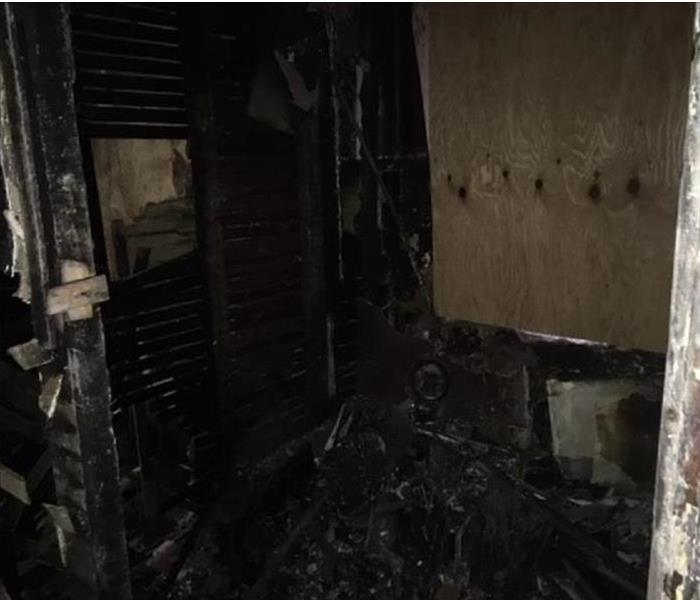6 Leading Causes of Home Fires
7/15/2021 (Permalink)
Here Are Six Of The Most Common Causes Of House Fires
The National Fire Protection Association complies data on home fires in the United States. The NFPA then publishes the study on home fire, injury, and loss of life. Although the statistics are alarming, there are several areas that many of the fires have in common. You can help increase the odds your home in Easton, PA will never experience a blazing disaster by noting these six leading causes of home fires and proactively checking to make sure your home is safe.
1. Lit candles are a leading cause of fires. Although most candles come with a warning about not leaving the wax creation alone when burning, most people ignore the notice. Once lit, the flames can catch curtains, carpets, and papers quiet easily and then spread through the whole house.
2. Electrical devices are a major cause of house fires. Faulty electrical connections and over-heated equipment top the list of hidden fire causes.
3. Smoking is still a major source of home fire problems. People still fall asleep with a burning cigarette in their hand. The bed, chair, or carpet can then easily catch fire and cause serious injury. This type of fire is ranked by fire repair and restoration professionals as one of the worst type of fire cleaning scenarios.
4. Small children are a major cause of residential fires. Interestingly, playing with fire by children has been ranked in the top five of dangerous fire scenarios for more than a decade.
5. Holiday decorations cause many fire tragedies during winter months. Dry trees and overheating lights are noted as the major cause of holiday fires.
6. During summer months, lightning can often cause home fires. Homes in wooded areas are especially vulnerable to lighting strikes and major fire damage.
It is estimated that a home fire ignites every 86 seconds in the United States alone. That means the odds of a fire occurring in your neighborhood during your lifetime is rather large. By noting the six-leading causes of residential fires, you can take the extra step and proactively protect yourself and your family.





 24/7 Emergency Service
24/7 Emergency Service
